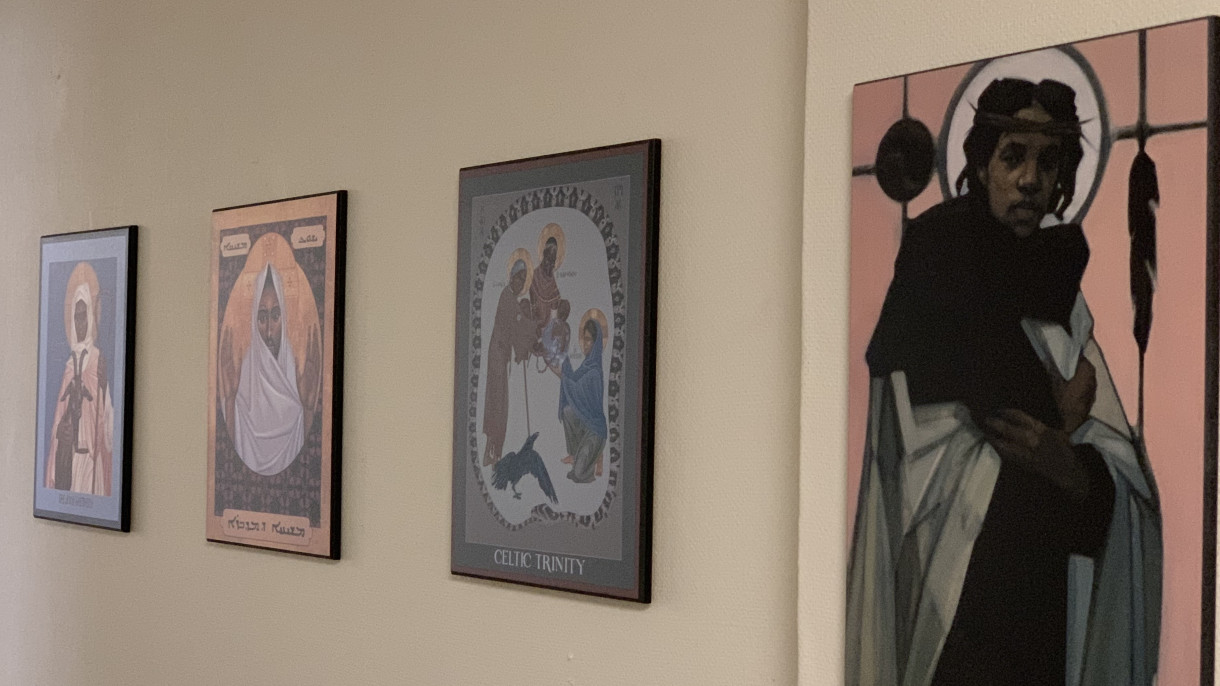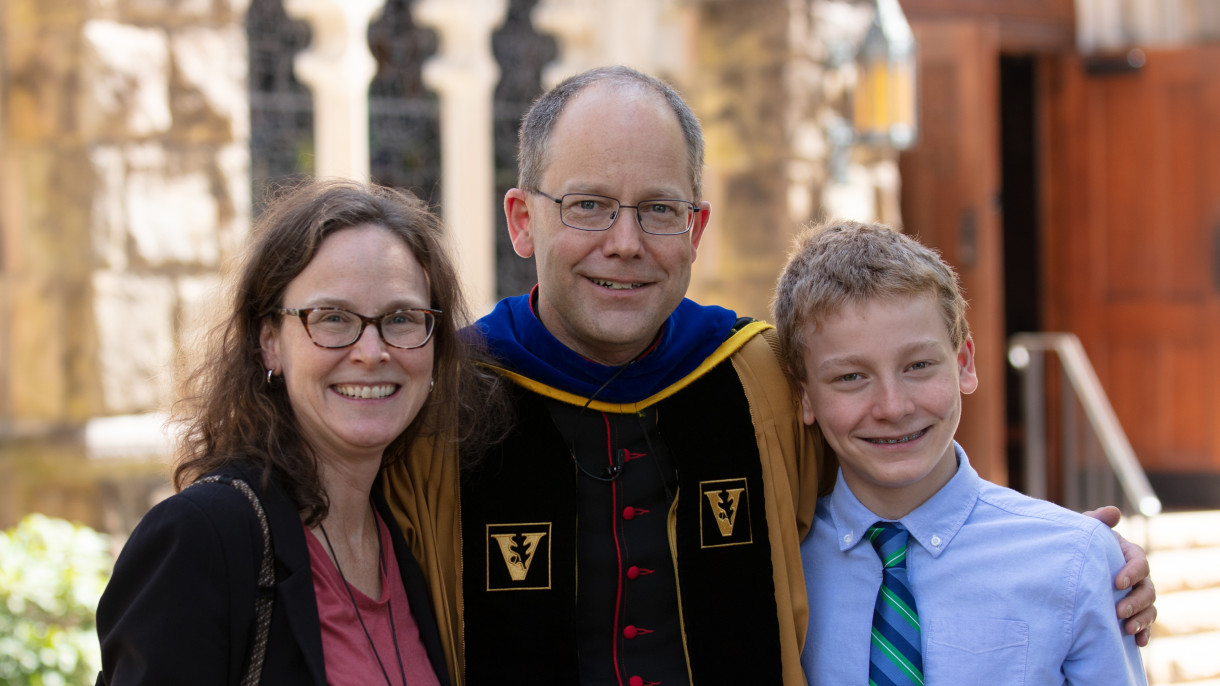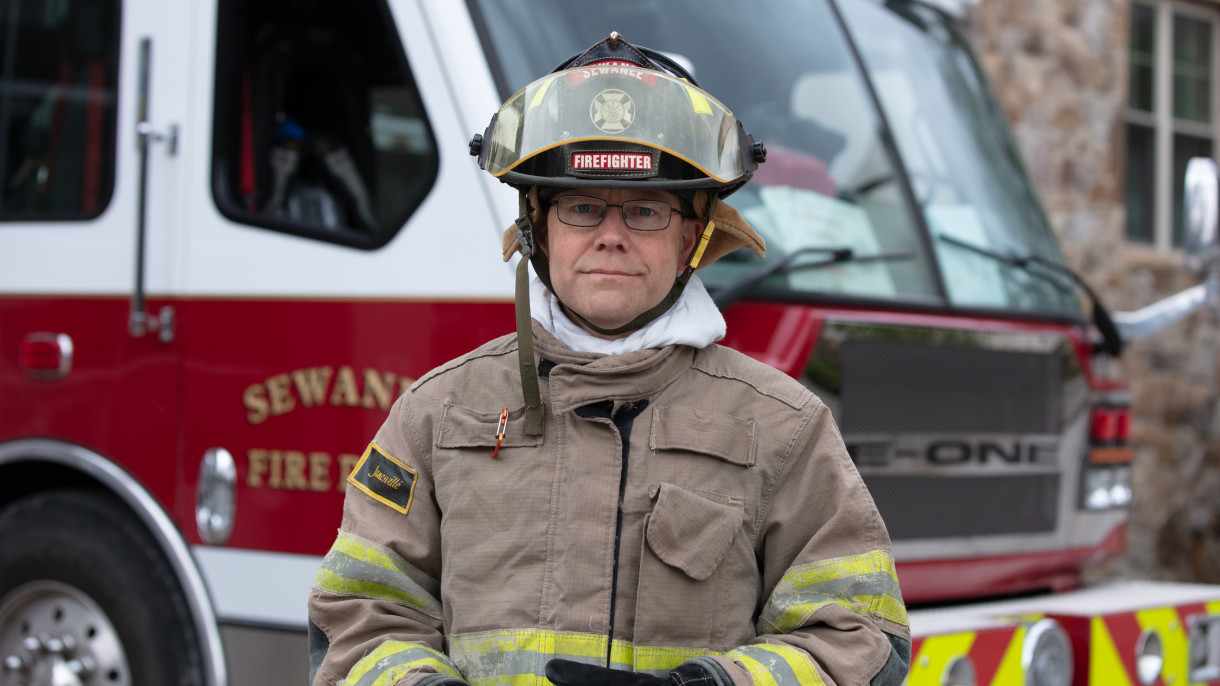The process of selecting the leadership at any university is often long and arduous. No less so in Sewanee, where the dean of the School of Theology must not only prepare future clergy for service to an ever-changing Church, but also work closely with the vice-chancellor and the many administrators in the college.
The selection process for the dean for the School of Theology reached its climax in March of 2020, a date that many will remember as the beginning of the Covid-19 pandemic. “I had the off-campus interview in Nashville in mid-March,” says the Very Rev. James Turrell. “It was not long after that the University moved into the shutdown phase.”
Despite the obvious challenges that a pandemic brings, Turrell has worked closely with the Rev. Dr. Benjamin King, dean for academic affairs, to look critically at the curriculum and make revisions to ensure that what is being taught will prepare the students for what lies ahead.
The revision, which includes expanded field placement and new course requirements for classes on parish leadership and community organization, equips ministers for service in the ever-changing reality of the Church. “The premise is that we want our graduates to be ‘devout, learned, and useful,’’ explains Turrell. “The idea of ‘learned’ is obvious, because we are an academic institution and that’s at the core of our identity. We want clergy and lay leaders to be devout, so our worship life is very important, and we are also working to create better time, space, and resources for personal prayer and spiritual formation.”
“Finally,” says Turrell, “being ‘useful’ to me is not necessarily learning the ‘of the moment’ technical skills, but rather grounding students in the tradition and giving them the creative capacity to take the core activities of Church, which is to gather and hear the Word and share the sacraments, and adapt them to the demands of the time. These ideas are the touchstones that I keep in my head as we move forward, because I think that means that formation in the broader sense gets elevated and receives more attention. And formation is part of what we as a residential seminary can offer that is harder to offer online and in low-residence programs.”
Turrell’s other projects extend beyond working with seminarians. He is committed to providing resources for lay leaders in the Church. “Collaborating with Karen Meridith and Education for Ministry (EfM), we’re imagining some additional programming beyond the fourth year of the program and creating some new ways to distribute that,” explains Turrell. “We’re in conversation with Anthony Guillen at the Episcopal Church’s Office for Latino and Hispanic Ministries about some ways that we can partner with his office and expand our formation for Latino ministry.”
In addition to these projects, the University continues the critical work of racial reconciliation. The Black Lives Matter movement gained prominence in the summer of 2020, concurrent with Turrell’s start as dean, making it a fundamental and perhaps even defining aspect of his term thus far. “The national conversation shifted in the summer of 2020, and so I came into the job at a time when it was clear to all the faculty that we needed to engage in some serious conversations about racial reconciliation,” says Turrell. “The Roberson Project produced a research report, which Ben King and Woody Register were integral in compiling, that named and confronted the University’s historical entanglement with slavery and its legacy. My good fortune is that we have a wonderful team of folks and the attention in the wider culture was mirroring the attention that the University had begun paying earlier with the birth of the Roberson Project.”

Working with faculty, staff, and students, small changes were made quickly like the representation in the artwork in the hallways and the art in the Chapel of the Apostles. “We thought about what those collections said about God and the people of God and we broadened that vision so that it is a more accurate representation,” Turrell says. Other steps have included shared reading and discussion among the faculty and a series of presentations for the whole community, addressing issues around diversity, equity, and inclusion. The School has also made intentional efforts in recruiting students and faculty from underrepresented groups. “What we’re also trying to do is work on the human heart and work on the culture. Both take a long time. I think we have made some strides, and I think we still have much ground to cover.”
Turrell asserts that the School has been doing the work of racial reconciliation in one way or another for many years. “I’m fond of pointing out to folks that in the 1950s, members of the School of Theology faculty were the ones who resigned their posts because of the trustees’ refusal to integrate the university; the first African American graduates of the University were from the School of Theology in the 1960s,” he says. “And, at the same time, we can always do better. Every institution has its values whether they name them or not. It is extremely important for the University not only to name our values, but to recognize that our values were not always the institution’s values. We must be willing to look back and say that the institution, as much as we love it, is complicated in its history and at one time embraced things that we would want no part of.”
Though the Mountain seems like a place where things always stay the same, it is first and foremost a place of welcome. To create and maintain that sense of welcome requires continual work and constant examination. “I really enjoy talking about what our school is doing and what my colleagues and our students are up to,” he says.
By inviting all of those who love the Mountain to hear about the ways that it is changing, Turrell continues the tradition of welcome that is at the core of Sewanee’s identity. As he says, “Sewanee is a place where we live together in community and where we learn how to engage one another with charity. That’s something we don’t tend to see in our national sphere.”

A relatively young dean in the School’s history, Turrell is married with a child in high school. Fulfilling the vocations of priest, husband, and father, Turrell’s experience mirrors that of many students at the School of Theology. “In terms of navigating our lives together, it is clear to me that I have a vocation as a husband and a parent alongside my vocation as a priest and an academic,” says Turrell. “Everybody has to navigate those different vocations simultaneously, which is really a way of saying that God has constructed each of us and called each of us into a very peculiar set of connections, responsibilities, and roles. It’s always a work in progress to balance those.”
In addition to being the dean of the School of Theology, Turrell has recently joined the ranks of the Sewanee Fire Department. “Chip Schane, who is the vice president for public safety and Sewanee’s fire chief, asked me if I’d ever thought about joining the Fire Department. I said, ‘I’m a scrawny, 50-year-old academic. How could you use the likes of me?’ And he said, ‘There’s a role for everybody.’”

Turrell’s role is not just fighting fires, but also offering pastoral support to the other volunteers at the station. But the work of ministry is often a two-way street, and Turrell remarked at how wonderful it was to experience a community like the one at Sewanee’s firehouse. “One of the distinctive characteristics of the fire department is that it brings local residents, university employees, and students all together for a common purpose.”
This common purpose is quite simply a love of community. “It’s probably the purest form of public service that’s still left,” says Turrell. “Someone could be having the worst day of their life, and when they ask for help, strangers show up at real risk to themselves and try to make the situation better. And, it is strangers who are unpaid. Volunteers are doing it for no reward other than the fact that they feel called to help people. The firefighters are remarkable individuals—they are kind, selfless, and good teachers. And they have accepted an old guy like me into their community and are teaching me how to be a firefighter.”
